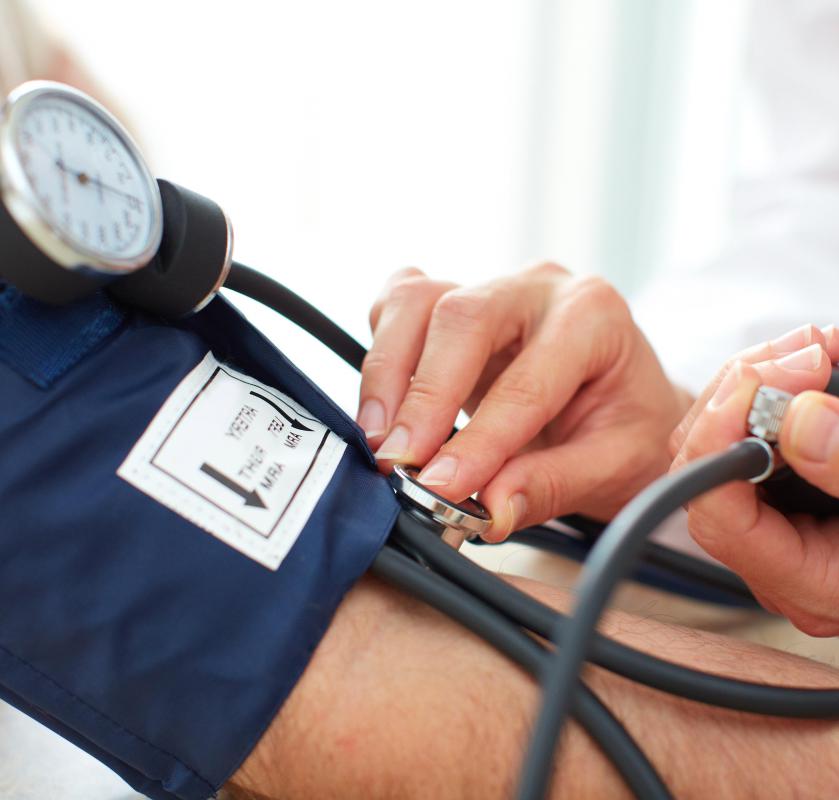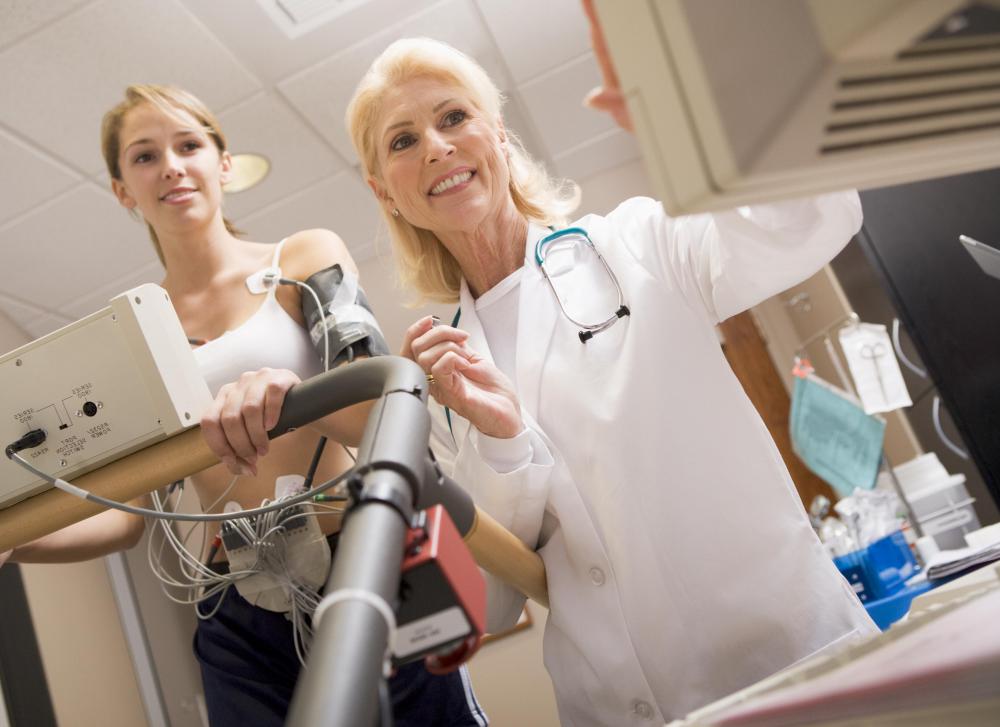At TheHealthBoard, we're committed to delivering accurate, trustworthy information. Our expert-authored content is rigorously fact-checked and sourced from credible authorities. Discover how we uphold the highest standards in providing you with reliable knowledge.
What is Fitness Assessment?
A fitness assessment is a series of measurements that help determine physical fitness. It usually contains several standards. Depending upon the assessor, other tests may be added to achieve a greater picture of fitness or lack thereof.
The main tests in a fitness assessment evaluate body mass index, resting heart rate and blood pressure, and aerobic fitness. Additional tests may evaluate body composition, lung capacity, flexibility and strength.

Body mass index (BMI) is one of the least demanding fitness assessment tests. It evaluates a person in terms of their height and weight to determine total body mass. It can show if a person’s body mass measurement exceeds normal limits and thus indicates that weight loss would be a good idea.
BMI alone is usually not thought to be the best measure of physical fitness. Someone who is very muscular may have a higher BMI than is considered normal, because muscle weighs more. A true measurement of a body’s fat content may be better obtained through hydrostatic weighing, which assesses the body’s composition more exactly.

A typical fitness assessment will also evaluate heart rate and blood pressure. Measuring resting heart rate is important because it allows one to figure at what the safe levels of increasing the heart rate are during aerobic exercise. The basic formula for measuring safe maximum heart rate is 220 minus age, minus resting heart rate. This figure is multiplied by 0.9 and the resting heart rate is added back to get the maximum heart rate at which one can safely exercise. In a 40-year-old person with a resting heart rate of 60 the equation looks like the following: (220-40-60).9 + 60.

However, determining appropriate maximum heart rate should also take into account blood pressure. A person with high blood pressure should be evaluated by a physician prior to proceeding with an exercise program. Thus a fitness center can also help evaluate risk.
Another common test in this type of assessment is aerobic fitness. This looks at the heart rate and oxygen rate during a moderate workout that may last five to ten minutes. Evaluations about the ability of the blood to oxygenate thoroughly as demands are greater on the heart and lungs can give people information regarding at what level they should attempt exercise.

Fitness assessments are frequently performed at a health club, and these tend to be fairly minor assessments. The assessors may not be particularly well trained. In most cases, if one has not exercised much in the past, the best place to assess fitness is with one’s doctor prior to beginning an exercise regime. Some of the tests performed may be similar, but will have the added attraction of interpretation by an expert.

A physician can also help one establish a modified fitness program based on high blood pressure readings, or on any heart anomalies. A doctor can also help address such problems medically as needed. This is most valuable since it can be dangerous to proceed with an exercise program if one has cardiac or blood pressure issues. Any injuries may also be evaluated to help determine the safest way to become more fit, or to maintain physical fitness.
AS FEATURED ON:
AS FEATURED ON:















Discussion Comments
I think that before you start an exercise program you should see a doctor who can perform an electrocardiogram to ensure that your heart is healthy.
Some people that appear seemingly healthy on the outside suffer heart attacks all of the time because they were unhealthy on the inside.
For example, there was a case of a doctor who was a marathon runner that had a heart attack. This was Jamie Colby’s from Fox News’ husband. They wrote a book together and he seemed like a picture of health.
He survived his heart attack and is now speaking out about getting your heart checked.
I know that the VO testing measures the person’s aerobic endurance level or their aerobic capacity.
A trainer may have his client jog as fast as he could for a specified period of time.
The level of oxygen intake would be measured and determine the overall level of fitness a person has.
Most exercise gyms offer this service which is really beneficial because you only want to work out at a level that is comfortable for you.
With this test, the trainer can determine your starting point with respect to exercise. This is a very effective physical fitness test.
The personal trainer also does metabolic testing to determine the rate at which you burn calories. Metabolic testing is important if you are overweight because your weight problem might be due to a sluggish metabolism that may require medical intervention to help.
A trainer will also perform a VO2 max testing usually on a treadmill.
A fitness assessment is usually done in fitness health clubs. There is a body composition test that measures the percentage of fat that the person has.
It is usually done at an exercise gym, with a skin fold test and a measurement of the circumference of the waist.
This will help the personal trainer to determine the person’s body mass index. A waist measurement of above 35” for women poses higher health risks of developing diabetes, cancer, and other life threatening diseases.
Post your comments